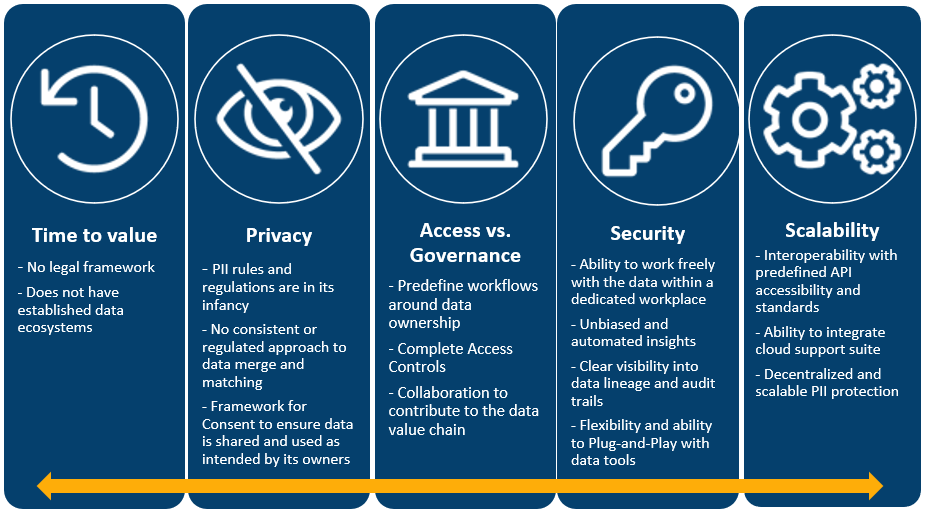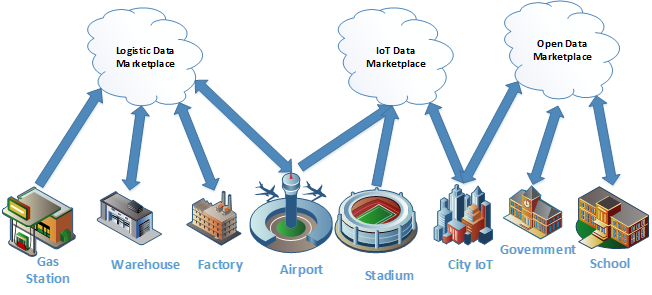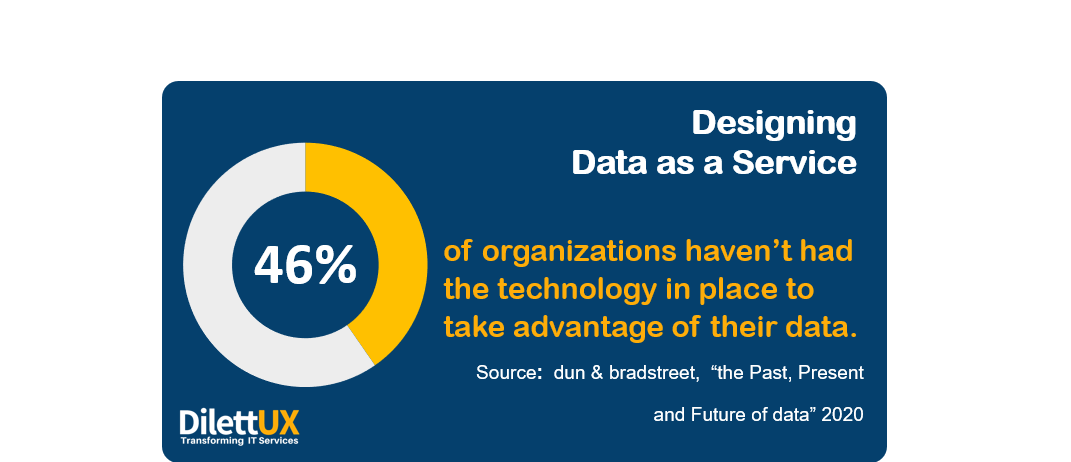Introduction
Every day more and more organizations turn to the cloud to modernize their infrastructure and workloads. Data as a service, or DaaS, is becoming an increasingly popular solution for data integration, storage, and analytics. By embracing DaaS, companies can improve the agility of data workloads, reduce time-to-insight, and increase the reliability and integrity of their data.
According to Talend.com, “Data as a service (DaaS) is a data management strategy that uses the cloud to deliver data storage, integration, processing, and/or analytics services via a network connection”.
As other “as a Service” technologies, DaaS removes the need to install and manage solutions locally, DaaS outsources most data storage, integration, and processing operations to the cloud.
Currently one of the main issues the companies are facing is that data is locked in silos. As a result, organizations struggle to find data. Data silos lead to significant roadblocks toward the modernization of data ecosystems. Here are some of the common symptoms of data silos:
• Point to Point B2B and B2C integration
• Low adoption of data marketplaces
• Inadequate technology to break down silos
• Lack of business ownership
• Poorly defined data laws
Data sharing challenge
Data sharing has enormous economic and societal benefits. Data can stimulate economic growth, promote better decision making, increase transparency and efficiency, as well as improve your quality of life. However, in the current state, it is difficult and risky to share data at the larger scale. Common data sharing issues can be categorized as follows:

Data sharing brings real benefits to the companies. These are some of them:
- Utility
- Uniqueness or exclusivity
- Ease of production
- Usage and sharing restrictions
- Usability and integration
- Trustworthiness
- Support and
- Consumer demand
Journey to the data marketplace ecosystems
The data marketplace can be understood as a digital platform on which data products are traded. In today’s digital economy, there is a huge supply of data; however, finding good quality data remains a challenge. Data marketplaces and specialized data vendors may create an ecosystem to alleviate this pain. Data marketplaces provide standardized access to data, and they regulate the usage of data.

Even though consumers have become large data generators, they do no have the luxury to opine on how their data is to be used by organizations. Personal data is often aggregated by value-added service providers in exchange for a free service (for example, Facebook and Google). In such scenarios, the value of data is already recognized in the form of free service; however, the true cost of the data cannot be determined until data is traded openly in the marketplace.
The data marketplace is based on the concept that the data product can be provided on demand to data consumers regardless of the geographic or organizational separation of the provider. This development has enabled the recent emergence of the relatively new concept of DaaS. In a DaaS ecosystem, every organization must first identify the type of data that they need to consume from the marketplace and/or exchange with the marketplace.
Also, not all data can be shared in the data marketplace. An organization must survey its data sources and identify those that benefit from sharing. Organizations willing to participate in data sharing have a responsibility to be a good data steward to ensure the highest data quality.
Benefits of DaaS
Consistently deliver and manage internal and external data brings benefits for both: IT and Business:
IT Benefits
• Agility: Firms become more agile, as they can quickly implement changes and roll out new data due to the unified data models, transparency, and simplicity of the process.
• Flexibility and Cost Efficiency: IT becomes more efficient in managing internal and external data by eliminating redundant copies of data and business processes. This can result in an overall reduction in data management cost and can result in faster access to data.
• Transparency: Firms utilize unified data models, definitions, metadata, tools, and support. They can leverage specific experience of data owners and providers to access data closer to the source, to increase transparency, and to benefit from enhancements.
Business Benefits
• The business will have a strong understanding of customer and competitor needs with easy, consistent, cost effective, and secure access to data for market analysis.
• The business will be able to monetize organization data and explore new business opportunities.
• Data is an asset, and accessibility to data incurs costs. The business must effectively leverage its assets and look for opportunities to increase its value.
• The business will have a mature data practice by adopting a comprehensive legal, financial, and monetary framework for data and its ownership.
Conclusions
The conclusions of this newsletter are summarized in these references of experts:
- “The design of data ecosystems, infrastructures for the secure and reliable data exchange among organizations, is considered one of the key technological enablers for digitalization and the digital economy of the future.” – Source: Cappiello, et al. 2019.
- “Data driven companies are already providing additional benefits to its customers and are well-positioned to upsell new services to these customers. However, its very important to maintain data quality as they start providing additional data products. This is hard to do, so better to go slow than to dilute your brand. They are better off increasing value of their existing data assets through well organized data management practice” – Source: Hoffmen, 2019.
References
Info-Tech, “Design Data as a Service” blueprint, 2020.
Data as a Service: A Framework for Providing Reusable Enterprise Data Services, 1st Edition. Pushpak Sarkar.
DilettUX, as a Info-Tech´s certified partner, can help you to implement DaaS in your organization, understanding your Data Ecosystem, designing your “Data Product” and establishing the DaaS framework. Contact us!


